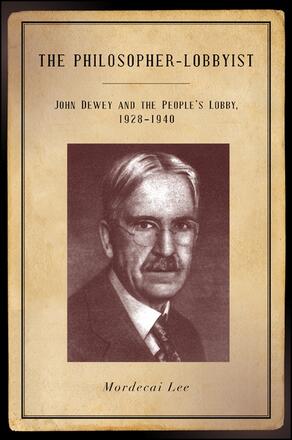
The Philosopher-Lobbyist
John Dewey and the People's Lobby, 1928-1940
Alternative formats available from:
The history of John Dewey's leadership of the progressive People's Lobby.
Description
John Dewey (1859–1952) was a preeminent American philosopher who is remembered today as the founder of what is called child-centered or progressive education. In The Philosopher-Lobbyist, Mordecai Lee tells the largely forgotten story of Dewey's effort to influence public opinion and promote democratic citizenship. Based on Dewey's 1927 book The Public and Its Problems, the People's Lobby was a trailblazing nonprofit agency, an early forerunner of the now common public interest lobbying group. It used multiple forms of mass communication, grassroots organizing, and lobbying to counteract the many special interest groups and lobbies that seemed to be dominating policymaking in Congress and in the White House. During the 1930s, Dewey and the People's Lobby criticized the New Deal as too conservative and championed a social democratic alternative, including a more progressive tax system, government ownership of natural monopolies, and state operation of the railroad system. While its impact on historical developments was small, the story of the People's Lobby is an important reminder of a historical road not traveled and a policy agenda that was not adopted, but could have been.
Mordecai Lee is Professor of Governmental Affairs at the University of Wisconsin–Milwaukee. He is the author of several books, including The First Presidential Communications Agency: FDR's Office of Government Reports, also published by SUNY Press, and Promoting the War Effort: Robert Horton and Federal Propaganda, 1938–1946.
Reviews
"…a valuable contribution to the emerging field of non-profit history and activism. Political scientists and philosophers will find it valuable as a guide to both the history of progressive lobbying and as a rare window into what happens when academic specialists work in public policy settings as professionals." — Contemporary Pragmatism
"...Lee weaves together an intriguing historical account of how Dewey as a lobbyist was informed by Dewey as philosopher." — Journal of Public and Nonprofit Affairs